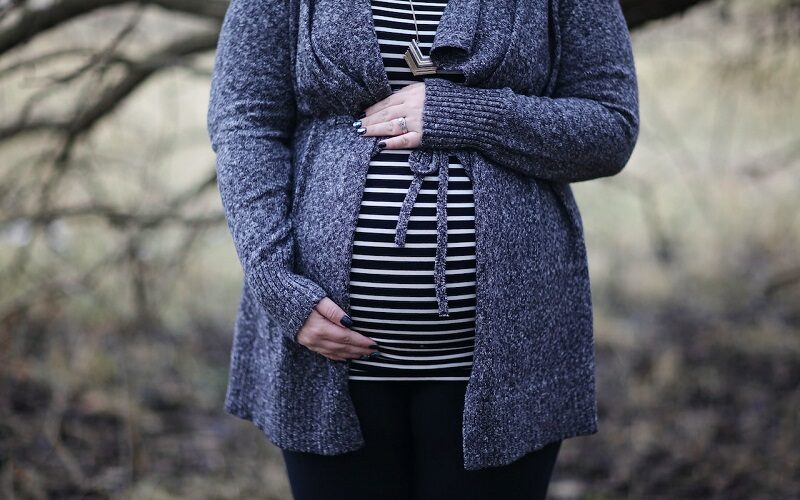Experiencing stress during pregnancy isn’t uncommon and it isn’t always dangerous, but you should know how it can impact both you and your baby.
Prenatal stress can affect you at any stage of gestation, and even though it’s a natural part of pregnancy, knowing what’s considered a “normal” level of stress vs what might have more severe consequences is important.
If you’ve ever wondered: does stress affect pregnancy?, read on — we’re looking at the causes, effects, and how you can find stress relief.
Understanding Stress During Pregnancy
Pregnancy causes hormonal fluctuations that can lead to mood swings and increased stress levels. While some types of stress may be expected, constant or excessive stress can negatively impact your mental and physical health and your baby’s development.
Normal vs. constant stress
A reasonable amount of stress during pregnancy is considered normal. Bodily changes, hormones, and anticipation about how much your life is about to change are top of mind for many women.
If you’re experiencing what you could describe as constant or overwhelming stress, though, it could indicate something more is going on.
For example, it’s pretty normal to have concerns about childbirth or to worry about adjusting to parenthood. However, constant financial difficulties that keep you up at night because you don’t know if you’ll be able to pay your bills this month, or relationship problems that are so intense you’re not sure if you and your partner will stay together, could weigh much more heavily on you throughout your pregnancy.
“It is never too early to recognize our stress response, as chronic stress can quickly accumulate. If pregnant, keep those stress management tools nearby as your sensitivity and the health of your baby can certainly be impacted, sometimes without fair warning.”
– Talkspace therapist Elizabeth Keohan, LCSW-C, LICSW, LCSW
Causes of Stress During Pregnancy
There are several causes of stress in pregnancy. They might include:
- Hormonal changes: Hormones play a significant role in causing mood swings and can contribute to increased anxiety.
- Fear: Fear related to labor, complications with delivery, or being responsible for raising another human being can cause considerable distress.
- Lifestyle factors: Balancing work commitments with new-parent duties and things like prenatal care and lack of sleep can cause you to feel overwhelmed.
Physical changes and their impact on stress levels
Pregnancy brings about physical changes that can contribute to increased stress levels. Some common physical changes during pregnancy might include:
- Weight gain: Gaining weight is an expected part of pregnancy, but it can lead to body image issues and discomfort for some.
- Sleep disturbances: As the baby grows, or as a result of hormonal shifts, many pregnant women experience difficulty sleeping.
- Morning sickness: Nausea and vomiting are common symptoms in early pregnancy that can cause both physical discomfort and emotional distress.
Emotional factors contributing to stress
Pregnancy can be a very emotional time. Factors that can cause emotional stress during pregnancy might stem from:
- Fear and anxiety: Fear and anxiety often get confused, but it’s important to understand the nuances between fear vs. anxiety to manage your stress effectively. It’s natural to worry about your baby’s health, labor and delivery, and even parenthood itself — but keep in mind, unmanaged fear and anxiety can cause a high level of stress.
- Mood swings: Hormonal fluxes can result in emotional upheavals, making it challenging to deal with things that may not normally bother you when you’re not pregnant.
- Body image concerns: The physical changes experienced during pregnancy might make you self-conscious about your appearance.
- History of depression or other mental health conditions: Women with pre-existing depression or other mental health conditions are more prone to stress during pregnancy.
External factors
External factors like relationship issues, work-related stress, or societal pressures can exacerbate feelings of anxiety and stress in pregnancy.
- Relationship issues: Partners or family members may not always be supportive during pregnancy, which can increase stress levels.
- Work-related stress: Working long hours and feeling overwhelmed at work can lead to feelings of despair and mental exhaustion.
- Societal expectations: Society often places unrealistic expectations on pregnant women in terms of their appearance and behavior. These expectations can cause feelings of guilt and add to your stress levels.
Effects of Stress on the Mother and Baby
Stress during pregnancy can seriously affect your health, and it can impact your baby as well. Understanding the effects and taking appropriate measures to manage stress levels is crucial.
“Our emotions are sometimes impacted by stress and perhaps more keenly during pregnancy. Keep a pulse on how you respond, manage, diffuse, and cope with stress. When stress is elevated, things like blood pressure, nutrition, and certainly fatigue can influence how well we navigate, including the course of pregnancy. Prenatal yoga, meditation, and exercise have undeniable benefits during this uniquely symbiotic time as a mother.”
– Talkspace therapist Elizabeth Keohan, LCSW-C, LICSW, LCSW
How does stress affect the mother’s health?
High-stress levels in pregnant women can lead to numerous physical and mental health issues.
Physical effects of stress
- Hypertension: Chronic stress can lead to high blood pressure, increasing the risk of developing preeclampsia — a potentially dangerous condition for both you and your baby.
- Weakened immune system: Stress can weaken the immune system, making you and your baby more susceptible to infections.
- Gestational diabetes: Elevated levels of stress hormones might increase insulin resistance and lead to gestational diabetes.
Mental health effects of stress
- Anxiety and depression: Prolonged exposure to stress during pregnancy could lead to symptoms of anxiety or depression. These conditions affect maternal mental health and pose risks for poor birth outcomes.
- Sleep disturbances: There’s a connection between sleep and mental health. High stress often results in sleep problems like insomnia, further increasing emotional stress and fatigue during pregnancy.
- Difficulty bonding with baby: Excessive prenatal stress has been linked to postpartum depression in new moms.
How does stress affect the baby’s health?
A high level of stress during your pregnancy can affect your baby’s health. Some research suggests that heightened stress levels may lead to increased production of cortisol and other hormones that can cross the placenta and potentially affect your baby’s growth. More research is needed, but some studies show there can be potential effects of maternal stress on a baby, including:
- Low birth weight: Chronic maternal stress might increase the risk of low birth weight.
- Long-term health problems: Extreme stress and pregnancy may cause developmental delays or learning disabilities.
- Preterm birth: High levels of prenatal stress might be linked to an increased risk of preterm delivery, which can result in complications like respiratory distress syndrome or cognitive impairments later in life.
- Cognitive and emotional development issues: Prenatal exposure to high-stress environments has been associated with impaired cognitive function, attention deficits, behavioral problems, depression, and anxiety in children.
What trimester does stress affect the baby?
Extreme stress at any point might negatively affect a baby. According to some research, babies exposed to high-stress levels during the first trimester might have a higher risk of schizophrenia and other related conditions. Stress later in the pregnancy has been linked to conditions like attention deficit hyperactivity disorder (ADHD).
Some bodies of research suggest that maternal stress in-utero can have long-lasting implications on physiology and behavior.
Can stress cause miscarriage?
Despite stress having other negative impacts, no evidence links stress to a higher risk of miscarriage.
How Can I Relieve Stress During My Pregnancy?
Learning to cope with stress during pregnancy is critical. Try the following stress management techniques the next time you feel like your stress is at an unhealthy level:
- Practice relaxation exercises like deep breathing or meditation for stress
- Use self care
- Maintain a healthy lifestyle by eating well and staying active
- Seek support from friends and family members who understand
- Talk openly about your feelings
- Journal
- Consider joining a prenatal support group or online community
- Attend stress therapy and speak to a licensed therapist
Find Support for Stress During Your Pregnancy
Long-term, significant stress during pregnancy can be concerning on several levels, for both you and your baby.
If you’re feeling stressed out and need help, contact your doctor or a mental health provider who specializes in managing anxiety during pregnancy. Talkspace is an excellent resource for online therapy and support for expectant mothers — and the online platform makes getting help easy and convenient, from the comfort of your own home.
Sources:
- 1. Stress and pregnancy. March of Dimes. Accessed June 5, 2023. https://www.marchofdimes.org/find-support/topics/pregnancy/stress-and-pregnancy
- Dunkel Schetter C, Tanner L. Anxiety, depression and stress in pregnancy. Current Opinion in Psychiatry. 2012;25(2):141-148. doi:10.1097/yco.0b013e3283503680. https://www.ncbi.nlm.nih.gov/pmc/articles/PMC4447112/. Accessed June 5, 2023.
- Thornburg KL, Boone-Heinonen J, Valent AM. Social determinants of placental health and future disease risks for babies. Obstetrics and Gynecology Clinics of North America. 2020;47(1):1-15. doi:10.1016/j.ogc.2019.11.002. https://www.ncbi.nlm.nih.gov/pmc/articles/PMC4447112/. Accessed June 5, 2023.
- Lima SA, El Dib RP, Rodrigues MR, et al. Is the risk of low birth weight or preterm labor greater when maternal stress is experienced during pregnancy? A systematic review and meta-analysis of Cohort studies. PLOS ONE. 2018;13(7). doi:10.1371/journal.pone.0200594. https://www.ncbi.nlm.nih.gov/pmc/articles/PMC6061976/. Accessed June 5, 2023.
- Khashan AS, Abel KM, McNamee R, et al. Higher risk of offspring schizophrenia following antenatal maternal exposure to severe adverse life events. Archives of General Psychiatry. 2008;65(2):146. doi:10.1001/archgenpsychiatry.2007.20. https://pubmed.ncbi.nlm.nih.gov/18250252/. Accessed June 5, 2023.
- Coussons-Read ME. Effects of prenatal stress on pregnancy and human development: Mechanisms and pathways. Obstetric Medicine. 2013;6(2):52-57. doi:10.1177/1753495×12473751. https://www.ncbi.nlm.nih.gov/pmc/articles/PMC5052760/. Accessed June 5, 2023.
Talkspace articles are written by experienced mental health-wellness contributors; they are grounded in scientific research and evidence-based practices. Articles are extensively reviewed by our team of clinical experts (therapists and psychiatrists of various specialties) to ensure content is accurate and on par with current industry standards.
Our goal at Talkspace is to provide the most up-to-date, valuable, and objective information on mental health-related topics in order to help readers make informed decisions.
Articles contain trusted third-party sources that are either directly linked to in the text or listed at the bottom to take readers directly to the source.




